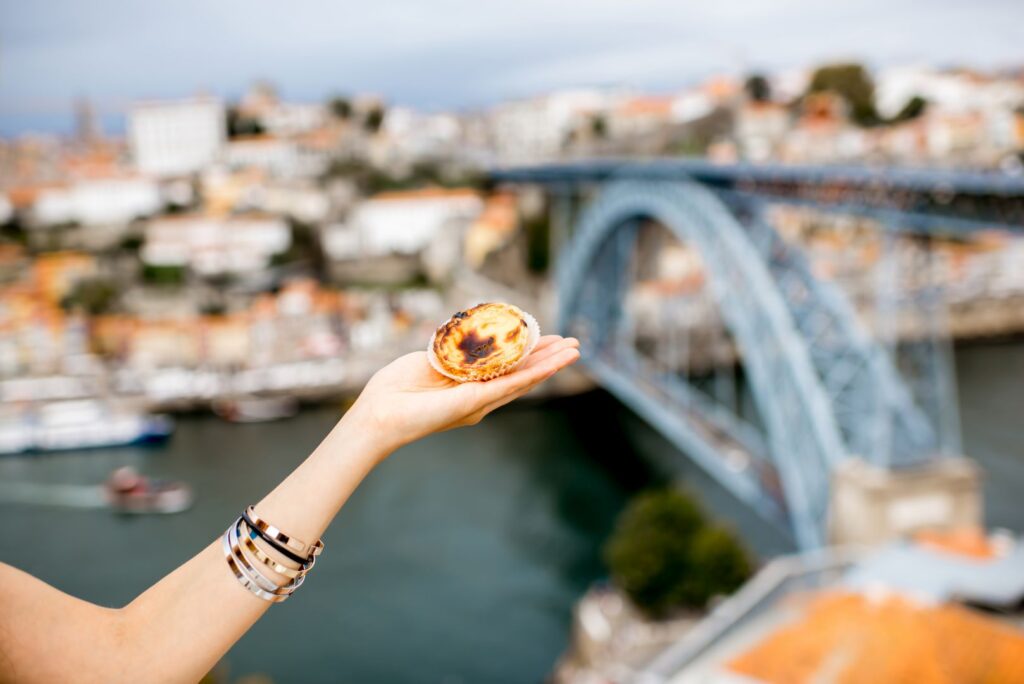
Prime Your
Group Travel To
Portugal Now

Custard Tart (Pastel de Belém)
A Bite of Bliss: The Iconic Pastel de Belém, Portugal's Custard Tart
Portugal’s culinary scene boasts an array of delectable pastries, but none are quite as iconic as the Pastel de Belém, a custard tart steeped in history and flavor. Originating in the Jerónimos Monastery near Lisbon, these flaky pastries filled with a creamy custard have become a national treasure, enjoyed by locals and tourists alike.
The origins of the Pastel de Belém can be traced back to the 18th century, when monks at the Jerónimos Monastery used leftover egg whites for starching religious habits. They devised a recipe for egg tarts, using the yolks and sugar, and selling them to supplement their income. The secret recipe has been passed down through generations, with only a few master pastry chefs entrusted with its knowledge.
The magic of the Pastel de Belém lies in its perfect balance of textures and flavors. The delicate puff pastry shell, light and flaky, gives way to a rich and creamy custard filling. The custard, flavored with lemon and cinnamon, boasts a subtle sweetness that is perfectly complemented by the slightly caramelized crust. The tarts are traditionally dusted with cinnamon before serving, adding a warm and inviting aroma to the experience.
Enjoying a Pastel de Belém is a ritual in itself. The historic Fábrica de Pastéis de Belém, located next to the Jerónimos Monastery, remains the go-to spot for these authentic treats. Here, visitors can witness the production process through a glass window and savor the tarts fresh out of the oven, still warm and dusted with cinnamon.
Beyond their deliciousness, Pasteis de Belém hold a special place in Portuguese culture. They are a staple at cafes and pastry shops throughout the country, enjoyed for breakfast, as an afternoon snack, or a sweet ending to a meal. They are also a popular souvenir, with tourists taking boxes home to share a taste of Portugal with loved ones.
So, next time you find yourself in Portugal, don’t miss the chance to indulge in a Pastel de Belém. This iconic custard tart, with its rich history, delightful flavors, and cultural significance, is a true testament to Portugal’s culinary heritage and a guaranteed bite of bliss.

